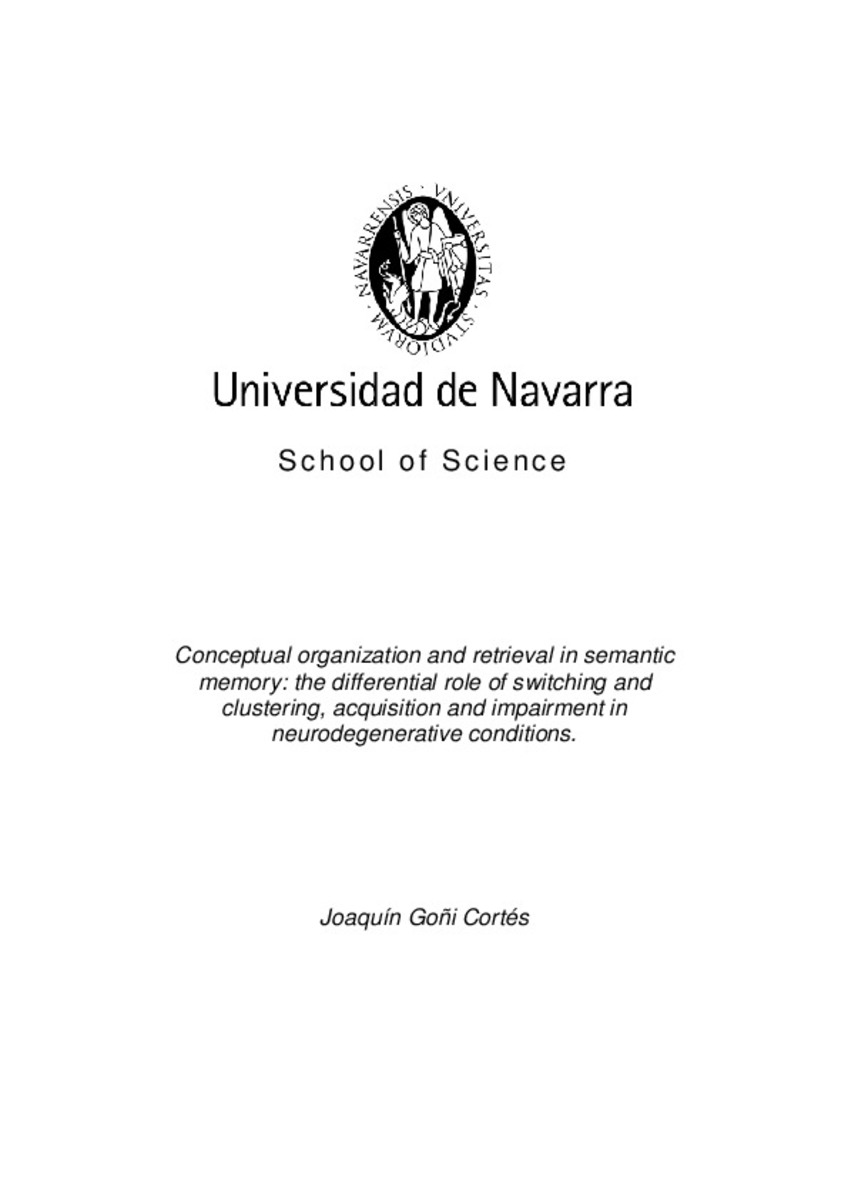Conceptual organization and retrieval in semantic memory: the differential role of switching and clustering, acquisition and impairment in neurodegenerative conditions
Keywords:
Materias Investigacion::Física
Publisher:
Servicio de Publicaciones de la Universidad de Navarra
Citation:
GOÑI CORTÉS, Joaquín. “Conceptual organization and retrieval in semantic memory: the differential role of switching and clustering, acquisition and impairment in neurodegenerative conditions”. Ardanza-Trevijano Moras, Sergio; Villoslada Díaz, Pablo. Tesis doctoral. Universidad de Navarra, Pamplona, 2008
Statistics and impact
0 citas en

0 citas en

Items in Dadun are protected by copyright, with all rights reserved, unless otherwise indicated.










